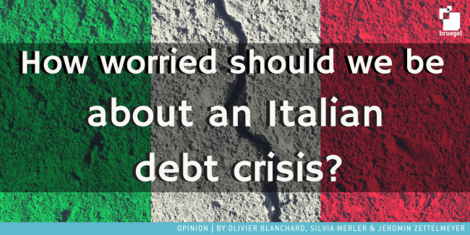Your podcast discovery platform
Curious minds select the most fascinating podcasts from around the world. Discover hand-piqd audio recommendations on your favorite topics.

piqer for: Globalization and politics Global finds
Sezin Öney, originally from Turkey, is based in Budapest and Istanbul. She her journalism career as a foreign news reporter in 1999 and she turned into political analysis as a columnist since 2007. Her interest in her main academic subject area of populism was sparked almost decade ago; and now she focuses specifically on populist leadership, and populism in Turkey and Hungary. She studied international relations, nationalism, international law, Jewish history, comparative politics and discourse analysis across Europe.
How Worried Should We Be About An Italian Debt Crisis?
This week is all about Italy, and its declining government bonds. But neither Italy's political crisis is new, nor its impending economic one. While there is no quick fix to Italy's political stalemate, and probably the latest move to delegate the task of governance to a technocratic government may only strengthen the populists in the short term, can Italy's economic crisis be averted? And how strongly would such a crisis affect Europe and beyond?
This article answers all the questions regarding Italy's primary economic weakness: its soaring debt.
The economists behind this article, Silvia Merler, Olivier Blanchard and Jeromin Zettelmeyer, communicate their points in a very straightforward and easily accessible manner, but if an Italian economic crisis will erupt, the possible picture is not as easily digestible as the article. In the authors' words:
[C]risis could be horrific, for two reasons. First, none of the powerful stabilisation instruments that the euro area has developed over the years could be deployed to rescue Italy. Following crisis-related downgrades, Italy would no longer be eligible for the ECB’s quantitative easing bond-purchasing program. The ECB would stop accepting Italian bonds as collateral. Access to emergency support programs—the ESM, and through it, the Outright Monetary Transactions (OMT) program—would be conditional on fiscal adjustment, the opposite of what Italy’s new government has promised. Unless the government were to change course, it would be forced to exit the euro, even if this is not its current plan.
Can Italy and Europe avoid reaching to this point? Luckily, the answer is yes:
Italy’s membership in the euro area may live to see another day. A European catastrophe may be avoided. But the costs of doing so could still be high, both for the political and social cohesion in Italy and for the future of Europe.
But only if whoever forms the in government makes the right choices – for all.
